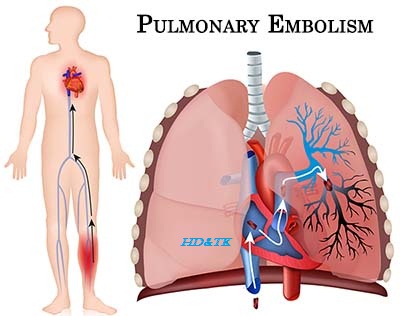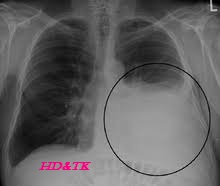Crohn's Disease
Crohn's disease causes inflammation of
the small intestine. Although it may involve any part of the digestive tract
from the mouth to the anus, it most commonly affects the last part of the small
intestine, called the ileum, and the large intestine, including the colon and
rectum. This is considered a chronic condition because it may recur at various
times throughout your lifetime, with periods of remission in which you are free
of symptoms. There is no consistently accurate way to predict when a remission
may occur or when symptoms will return.
The disease may occur in people of all
ages, although most are diagnosed before the age of 30. However, it also can
affect young children and older people in their seventies or beyond. Crohn's
disease occurs most commonly in people living in northern climates and affects
men and women equally. The condition can be inherited and is common in some
families. About 20 percent to 25 percent of those with Crohn's disease have a
close relative who also has the disease or the related condition, ulcerative
colitis. The cause of Crohn's disease has not been proven definitely. However,
the immune system's response to certain viruses and bacteria that cause inflammation
of the intestines is believed to be the primary cause of the disease.
Signs & Symptoms:
Common symptoms of Crohn's disease
include the following:
- Loose, watery or frequent bowel
movements
- Abdominal cramps and pain
- Fever
- Rectal bleeding
- Loss of appetite and subsequent weight
loss
During periods of active symptoms, you
also may experience:
- Fatigue
- Joint pain
- Skin problems
- Fissures, or tears in the lining of
the anus
- Fistulas, a tunnel that connects the
intestine to the bladder, vagina or skin
- Oral or skin lesions
Diagnosis:
First your doctor will ask about your
medical history and perform a physical evaluation. There is no single test that
can provide a diagnosis of Crohn's disease, but rather a series of X-rays,
laboratory tests, endoscopy and pathology tests that are used. These may
include the following:
Blood Tests: Blood tests may be done to
check for anemia, which may indicate bleeding in the intestines. Blood tests
also may uncover a high white blood cell count, which is a sign of inflammation
somewhere in the body. C reactive protein, a marker of inflammation, also may
be elevated.
•
Stool Sample: By testing a stool sample, the doctor can tell if there is
bleeding or infection in the intestines.
•
Small Bowel Radiograph: Your
doctor may perform a small bowel follow through to look at the small intestine.
For this test, you will drink barium, a chalky solution that coats the lining
of the small intestine, before X-rays are taken. The barium and irregularity of
the border between the barium and intestine shows up white on X-ray film,
revealing inflammation or other abnormalities in the intestine.
Treatment:
Although there is no cure for Crohn's
disease, there are a number of treatment options available.
Drug Therapy
Drugs are used to suppress the
inflammatory response associated with Crohn's disease, which in turn helps the
intestines to heal and relieves symptoms. Once symptoms are under control,
medications are used to decrease the frequency of flare-ups and prevent
symptoms from recurring. There are several types of drugs available to treat
Crohn's disease including aminosalicylates, corticosteroids, immune modifiers
and biologic therapy.




Comments
Post a Comment